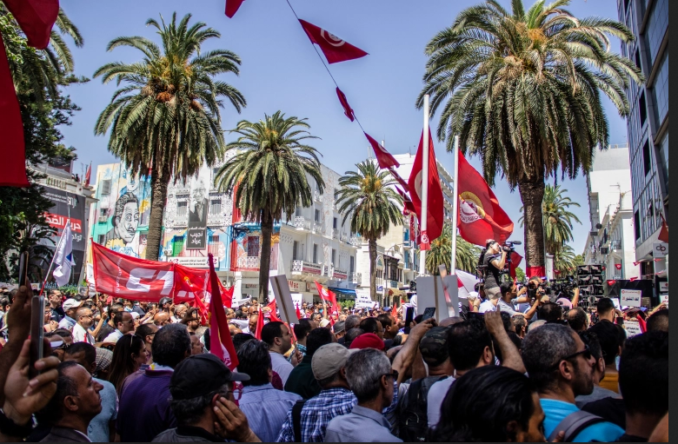Labor union in Tunisia resists the IMF
Tunisia’s President Kais Saied tried to stop the general strike, but 95% of the Tunisian General Labor Union (UGTT) membership walked out June 16. This led to closed airports, public transport, ports and government offices. The UGTT has about 3 million members.

General strike in Tunisia, June 16. Credit: UGTT
Tunisia’s tourist trade — a large part of its economy — was devastated by the COVID-19 pandemic. Due to the war in the Ukraine, the price paid for flour and wheat, to make the bread that’s an essential part of the Tunisians’ diet, has doubled and tripled.
Since Saied suspended the country’s parliament nearly a year ago, he has made concessions demanded by the International Monetary Fund (IMF) — cutting subsidies and wages.
The UGTT disagreed — and backed up its “No” with boots on the concrete.
“We are still trying to find a compromise with the government,” Hedia Arfaoui, UGTT’s deputy secretary-general in charge of external relations, said at the main rally in Tunis. He suggested that some less painful economic reforms might be possible. (aljazeera.com, June 16)
The day before the strike, the UGTT explained that workers would “hold this strike to defend their economic and social rights, after the dithering of the government in the face of their legitimate demands.”
The union denounced the worsening social situation of workers in all categories “in light of low wages, rising prices [and] the deterioration of purchasing power.”

